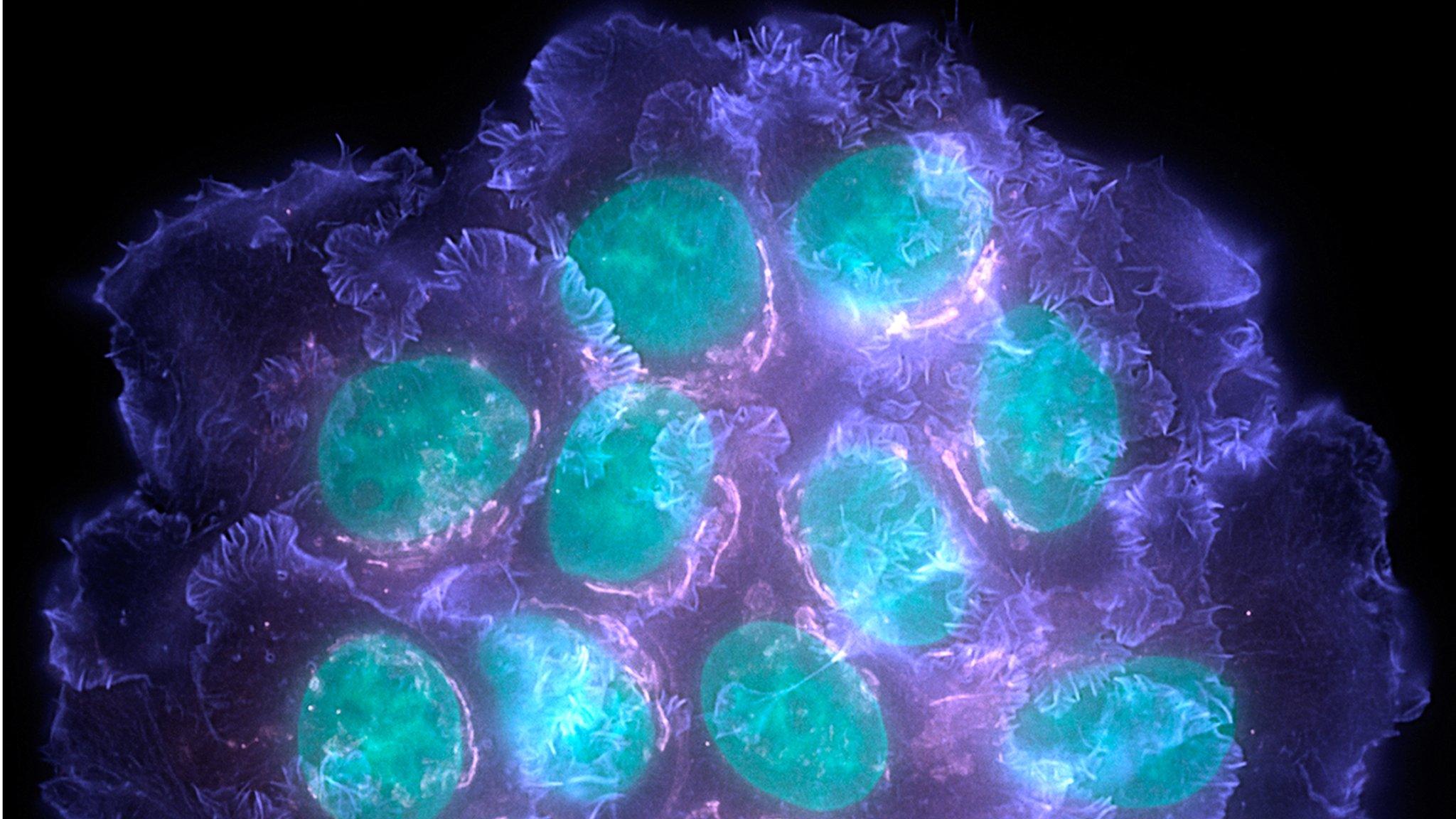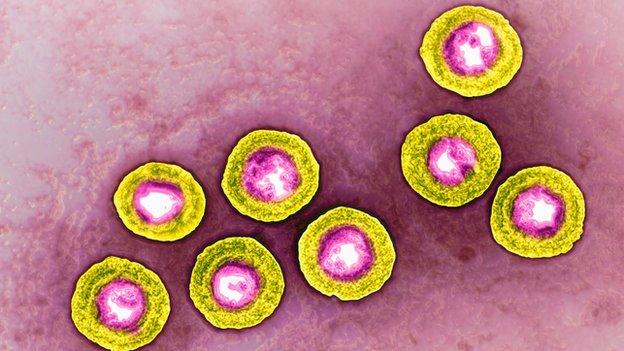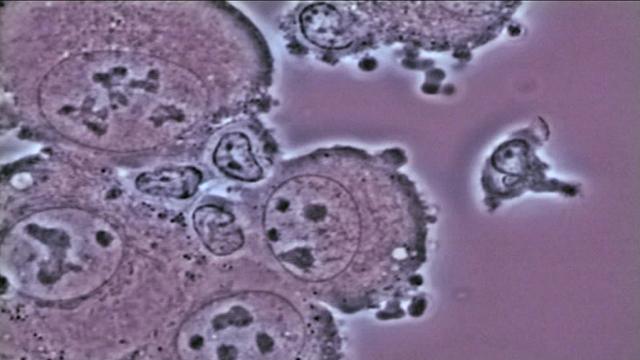Southampton cancer immunology centre campaign gets £480,000
- Published

The Centre for Cancer Immunology will be based at Southampton General Hospital
A fundraising campaign to build a new dedicated cancer immunology centre has received £480,000.
The University of Southampton is hoping to raise £25m for the research centre, which will open in 2017 and be based at Southampton General Hospital.
More than £11m has already been raised and the latest donation was given by charity the Wolfson Foundation.
Trials have shown the body's immune system can eradicate cancer for good, experts said.
A video courtesy of the University of Southampton shows the body's T-cells attacking cancer cells
Prof Tim Elliott, who studies experimental medicine at the University of Southampton, said: "The new centre will enable us to double the number of people working on cancer immunology.
"By the time we're fully operational we expect to double the number of patients on clinical trials."
The Centre for Cancer Immunology, external is to be partnered with the Francis Crick Institute in London, a biomedical research centre under construction.
The university claims cancer vaccines could be available within 15 years.
The Wolfson Foundation awards grants to support a number of academic fields, including science and medicine. Its donation will be used to build laboratories in the new centre.

What is immunotherapy?
Some cancers are able to evade our natural defences by switching off, or confusing, our immune system's killer T cells, allowing the diseased cells to grow exponentially.
Immunotherapy is a revolutionary approach to treatment that supercharges the body's natural defences to switch our killer T cells back on, which allows them to eliminate them.
The treatments developed at Southampton not only destroy visible cancer cells but also seek out and eradicate hidden cancers in other parts of the body.
Potentially, they give us a lifetime of immunity.
Source: University of Southampton

- Published28 May 2015

- Published28 May 2015

- Published26 May 2015

- Published17 July 2012
